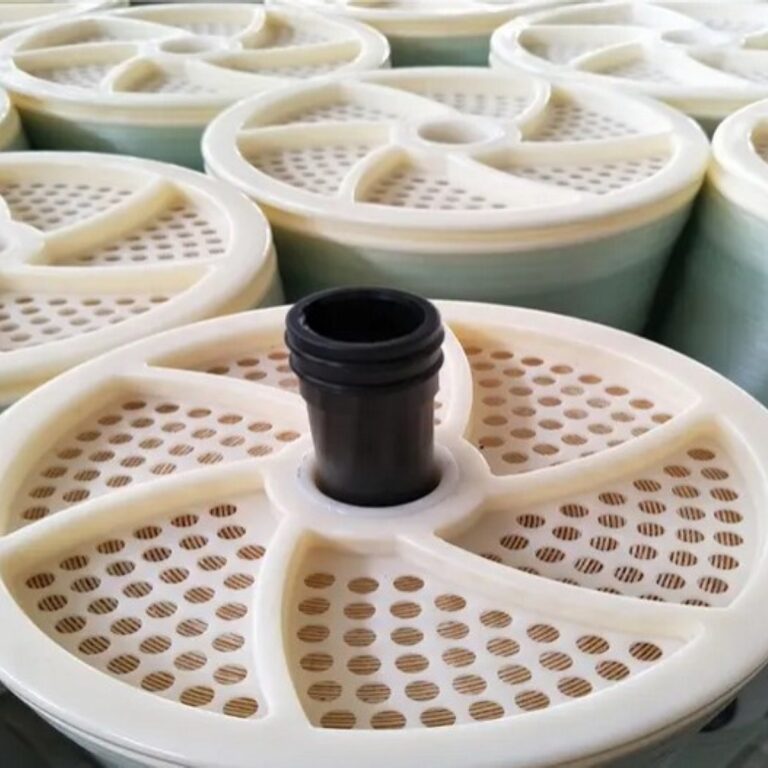Water pre-filtration - what is it?
Water pre-filtration is the first stage of the water treatment process to remove larger contaminants such as sediment, sand, silt, solids and other suspended solids. This process is crucial as it protects further stages of water treatment, such as deionisation, from excessive loading and wear, and ensures the efficiency of the overall treatment system.
Types of pre-filtration:
- Mechanical filtration:
- Mesh filters: They use fine mesh or sieves to retain larger solid particles.
- Sand filters: They contain a layer of sand through which the water flows, trapping larger contaminants.
- Replacement cartridge filters: They can be made of different materials that retain particles of a certain size.
- Carbon filtration:
- It uses activated carbon (carbon filters), which removes organic compounds, chlorine and unpleasant odours in addition to particulates.
- Osmotic filtration (reverse osmosis):
- A process in which water is passed through a semi-permeable membrane (RO - reverse osmosis), retaining most contaminants, including bacteria and viruses.
- Sedimentation filtration:
- It involves the removal of solid particles by settling them at the bottom of the tank; various types of filters are used for this, including foam/polypropylene filters.
Use of pre-filtration:
Pre-filtration is used in many areas. The use of pre-filtration and various types of filters, such as foam/polypropylene filters, carbon filters, RO membranes (reverse osmosis), is used where water quality is of great importance, such as
- In the wider industry: Protection of equipment and installations from contamination; car washes, washing of all kinds of glazing, production of medicines, etc.
- Households: Improving drinking water quality and protecting domestic appliances.
- Agriculture: Removal of contaminants from crop irrigation water.
Benefits of pre-filtration and the use of different types of filters:
- Increasing the viability of downstream water treatment stages.
- Reducing the risk of microbiological contamination.
- Improving taste, odour and water quality.
Pre-filtration is therefore a key step, ensuring the effectiveness of the entire treatment process and protecting against the successive components of the system wearing out too quickly. It is extremely important that the filters (foam/polypropylene, carbon, RO membranes) used for the pre-filtration process are replaced regularly.
In our shop you will find many equal types of foam/polypropylene filters, carbon filters, RO (reverse osmosis) membranes along with their parameters.
